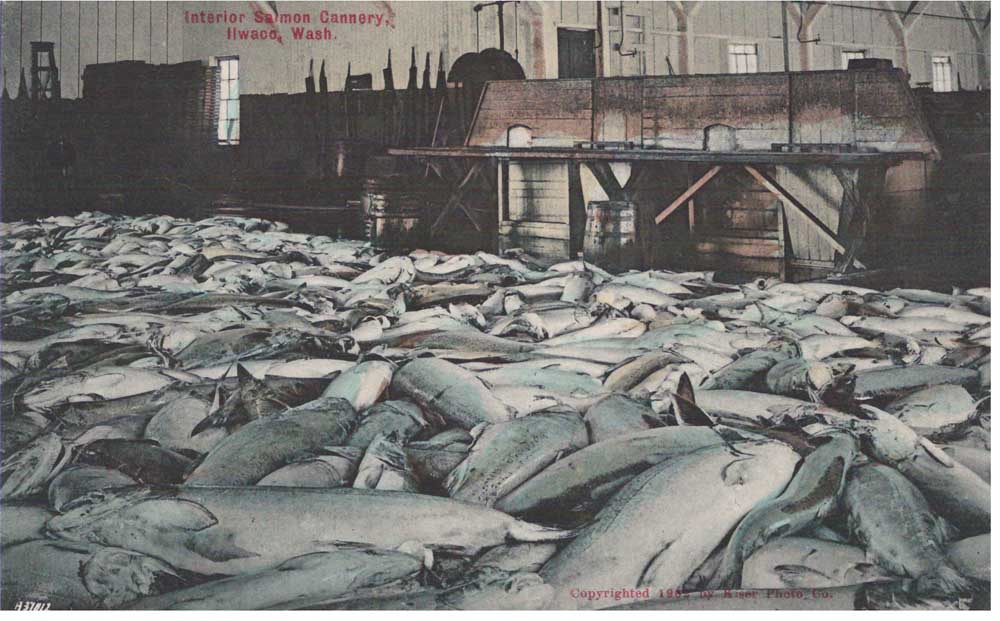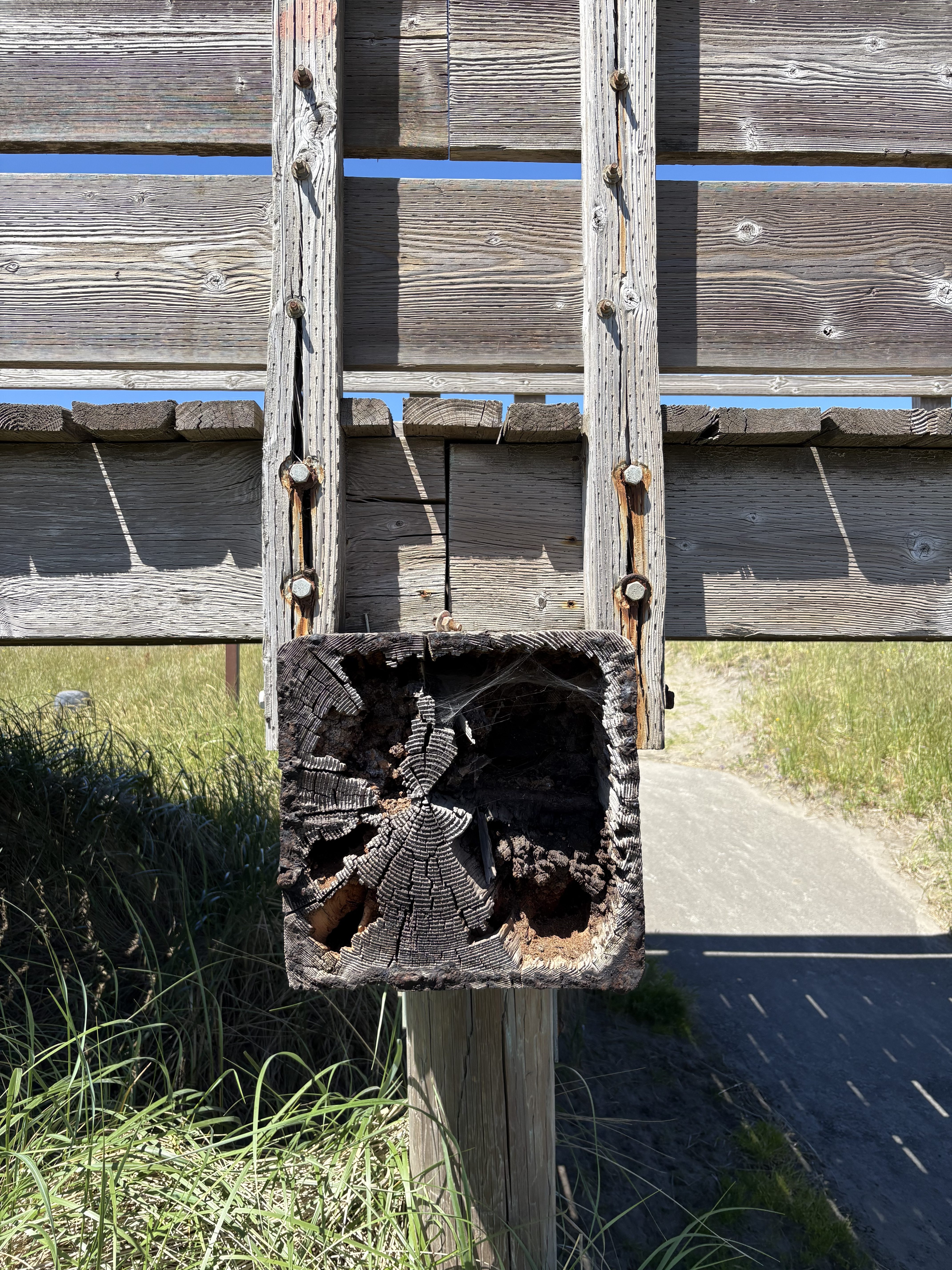A Look Back In Time
Published 8:49 am Friday, August 16, 2024

- Interior of one of the salmon canneries in Ilwaco is shown in a 1902 postcard. CPHM 2020.4.114
August Happenings in History
Aug. 5, 1583: The first British colony in North America was founded by Sir Humphrey Gilbert, a British navigator and explorer. He sighted the Newfoundland coast and took possession of the area around St. John’s harbor in the name of the Queen. He was later lost at sea in a storm off the Azores on his return trip to England.
Aug. 13, 1961: The Berlin Wall came into existence after the East German government closed the border between east and west sectors of Berlin with barbed wire to discourage emigration to the West. The barbed wire was replaced by a 12 foot-high concrete wall eventually extending 103 miles (166 km) around the perimeter of West Berlin. The wall included electrified fences, fortifications, and guard posts. It became a notorious symbol of the Cold War. Presidents Kennedy and Reagan made notable appearances at the wall accompanied by speeches denouncing Communism. The wall was finally opened by an East German governmental decree in November 1989 and torn down by the end of 1990.
Aug. 17, 1978: The first transatlantic balloon trip was completed by three Americans; Max Anderson, Ben Abruzzo, and Larry Newman, all from Albuquerque, New Mexico. Starting from Maine on August 11th, they traveled in Double Eagle II over 3,000 miles in 137 hours, landing about 60 miles west of Paris.
The Local Pages
Trending
Aug. 17, 1900, Pacific Journal, Ilwaco, Wash.: Cannerymen Are Arrested
“War to the knife and the knife to the hilt, says the Portland Telegram, is what is likely to be in progress in Astoria soon among the cannerymen on the Washington and Oregon sides of the river. The situation at present is a difficult one and for the last week had kept Fish Commissioner Reed working night and day.
An extension of the season allowed to fishermen and cannerymen on the Washington side by Fish Commissioner Little of the State of Washington, is the cause of the trouble. On the Washington side the season was extended from August 10 to August 15. Fish Commissioner Reed went down to Astoria on Friday and notified every cannerymen and cold-storage plant to close up operations at once. He gave them till the next day to get the last of the catch out of the way. His warning was not heeded, however, and they continued operations. Tuesday of this week Mr. Reed had every one of them arrested and the trial is set for Thursday at 10 o’clock. The cannerymen and cold-storage people have engaged an attorney and intend to fight the case out.
Under existing circumstances the cannerymen and cold-storage men are in a certain sense considered by many impartial people not to blame for violating the law. The canneries were running on the other side of the river, so they felt perfectly justified in running also.
This extension to the season on the part of Fish Commissioner Little is not regarded on the Oregon side as justified. He had no incentive for doing so except the plea of lack of funds, which were badly needed to pay his expenses. Fish Commissioner Reed sent several letters and telegrams to him, asking that a satisfactory agreement be reached in regard to the closing of the season, but to no avail.
Aug. 11, 1933, The Tribune: Danish Motor Ship Spends All Sunday Aground on Peacock
“The Stensby, a Danish motorship, went aground on Peacock Spit last Saturday evening at 11:30 p.m., due to miscalculation of the channel in the dense fog, although the Columbia river and Puget Sound bar pilots were on board at the time.
They tried unsuccessfully to back off the spit on their own power and finally radioed the coast guard cutter Redwing of their predicament at 1:30 Sunday morning. The Redwing came to assist ‘putting a line’ on the Stensby by Sunday afternoon, but the attempt to remove her from the Spit proved in vain. Around 2 O’clock Monday morning, with a good tide, and a strong pull by the Redwing, the Stensby was removed from the Spit, making way by its own power with no damage to the vessel.
The Cape Disappointment power boat as well as the Point Adams boat, were standing by near the vessel all day Sunday, running lines for the Redwing to the stranded Stensby.
The fog was so dense, that nothing was known of the stranded Stensby at the local coast guard station until early Sunday morning when Bernie Taylor of Ilwaco, notified the man on lookout calling from the beach below. No shots were fired by the ship and it was not discernible until nearly 8 O’clock in the morning.
The freighter was en route from Portland to Seattle, where it was to take on cargo for foreign ports.
The Stensby was of considerable interest to throngs of tourists, who motored to Fort Canby all day Sunday to view the vessel from the lookout bluff.”
Aug. 6, 1948, Chinook Observer: Spud And Bun Contests Interesting
“Hundreds of people jammed Pacific Avenue here Saturday afternoon to witness the Marsh-Nosko spud peeling, and the Marsh-O’Connell bun slicing contests.
The Marsh brothers — Wellington on the spud peeler, and Lee Marsh on the bun slicing — walked away with all honors; Wellington peeling 25 pounds of potatoes in 12 ½ minutes, the weight loss being but four pounds in peelings, against Nosko’s spud whittle of 25 pounds in 13 minutes, with a loss of 4 ½ pounds in peeling. While Lee Marsh unwrapped and slashed through 10 dozen round buns in approximately three minutes; his opponent having yet to unwrap and slice five half-dozen packages, when Marsh finished.
Many folks believe Nosko would have won, had he not dropped one of the spuds to the pavement, and upon trying to recover it, pulled a five-gallon kettle and peeled spuds and water over on top of his head, taking a thorough drenching, but going right on with the show, nevertheless…
Potato Marsh did his peeling the long-peel way, while Nosko took short strokes but much faster. And many folks believe Nosko would have won, had he not dropped one of the spuds to the pavement, and upon trying to recover it, pulled a five-gallon kettle and peeled spuds and water over on top of his head, taking a thorough drenching, but going right on with the show, nevertheless…
Marsh out-shined O’Connell, by first unwrapping all of the packages of buns, then placing them as they were in the package, against a brick on one end, and using his left hand to support the other end of the row of buns on edge, then zip, zip, zip, zip, zip, zip, and the package of buns were sli8ced. O’Connell unwrapped one package at a time, took each bun, set it down on its bottom and after laying out the six, placed the palm of his left hand over the bun top and then proceeded to slice through the middle.
Allen Stirret of the National Bank of Commerce was present to hold the Marsh-Nosko $50 bet money, and awarded same after the contest. Ted Lentz sent in a prize to the winning peeler, the prize proved to be a package of potato chips.
Spectators stood with opened mouths when Marshal Ted Blodgett prepared to pull the trigger of an old elephant gun to start the spud contest, and to everyone’s bewilderment, the explosion was a popgun effect coming from a small firecracker.
Following the battles, free ice cream, free balloons and free coffee were served by the losers.”









